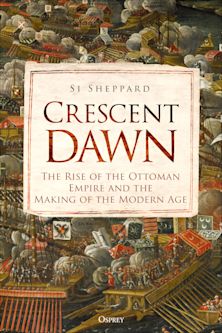- Home
- ACADEMIC
- History
- Medieval History
- The Military Orders from the Twelfth to the Early Fourteenth Centuries
The Military Orders from the Twelfth to the Early Fourteenth Centuries
- Textbook
The Military Orders from the Twelfth to the Early Fourteenth Centuries
- Textbook
Inspection copy added to basket
This title is available for inspection copy requests.
Please note our inspection copies are only available in ebook format, and are fulfilled by VitalSource™. If an ebook isn’t available, please visit our inspection copy page for more information.
Buy from Bloomsbury eTextBooks
You are now leaving the Bloomsbury Publishing website. Your eBook purchase will be with our partner https://www.vitalsource.com.
Your credit card statement will show this purchase originating from VitalSource Technologies. They will also provide any technical assistance you might require.
You must sign in to add this item to your wishlist. Please sign in or create an account
Description
This comprehensive survey of the military orders is based on a wide range of primary sources. Besides giving a clear account of the emergence of the orders, it investigates their military significance and the ways in which they obtained necessary funds and manpower. Their governmental structure and daily life are examined, together with the increasing criticisms they faced in the thirteenth century. The book ends with a discussion of the fall of the Templars and the changing roles of other orders in the early fourteenth century.
Table of Contents
The Military Role of the Orders
Manpower and Resources
Conventual Life and Organisation Changes in the Later Thirteenth and Early Fourteenth Centuries.
Product details
| Published | 24 Jan 1992 |
|---|---|
| Format | Ebook (PDF) |
| Edition | 1st |
| Extent | 292 |
| ISBN | 9781349218882 |
| Imprint | Red Globe Press |
| Series | New Studies in Medieval History |
| Publisher | Bloomsbury Publishing |
About the contributors

ONLINE RESOURCES
Bloomsbury Collections
This book is available on Bloomsbury Collections where your library has access.



































